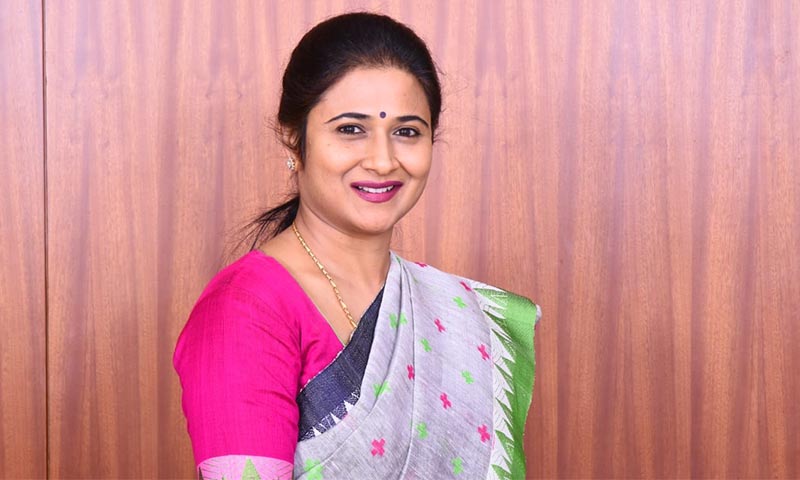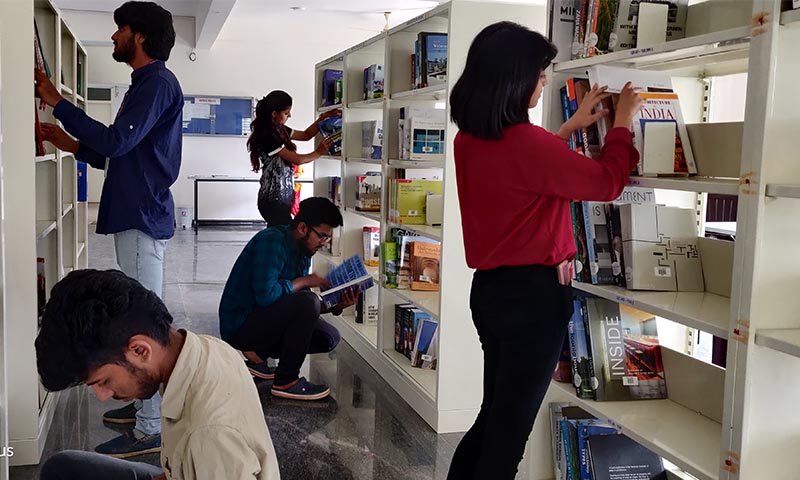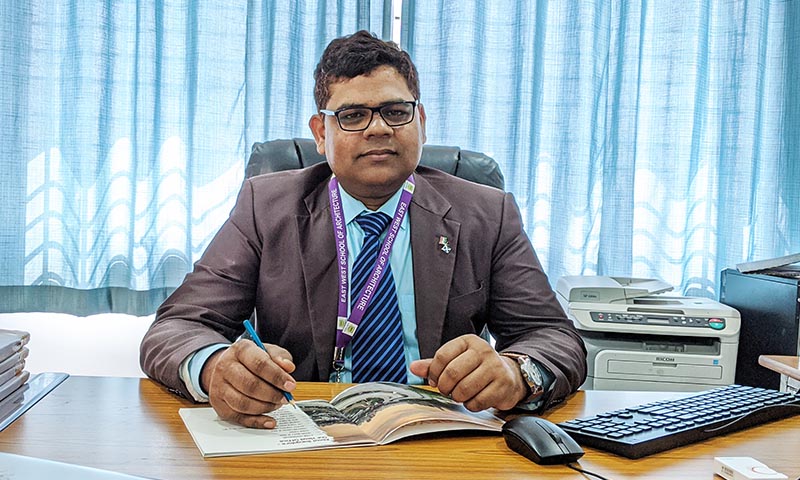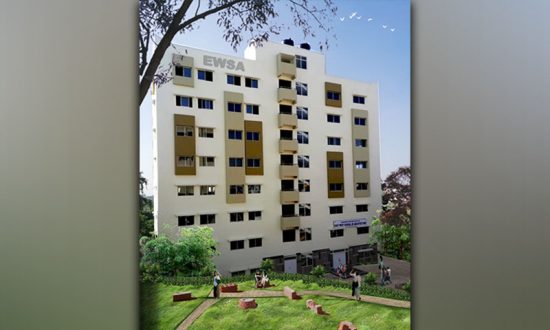The COVID-19 Pandemic has affected all aspects of life, whether its livelihood, mental health, education, trade, or profession. Architecture education has also faced a major brunt of the pandemic. Architectural institutions are taking their activities online as COVID-19 forces them to consider replacing real-world interactions with virtual alternatives. Being physical beings that thrive in learning spaces that are designed for moving around, exploring, and encountering, the unprecedented times have changed the paradigm of architecture education. Having a team of young and energetic faculty members, the East West School of Architecture (EWSA) moved online quite immediately. The institute has smart studios, where manual and digital education platforms are used to show dynamic content to the students. “We had adopted a blended learning model even before the pandemic happened, which made it easy for them in the remote learning transition,” says Ar. Chandan Kumar Rajak, Dean-Academics, EWSA.
Established in 2018, ESWA is a home for aspiring minds to pursue their dreams and enhance their skill sets in sustainable design where students can contribute towards a sustainable environment. The institute is embedded with committed teaching staff and venerable management to provide its students with an education that unites scrupulous educational programs integrated with co-curricular activities such as Guest lectures, sports, workshops, and cultural events for the holistic growth of a student. “Our mentors exercise classes using advance and smart teaching techniques to contribute much towards the holistic growth of students in honing them as unique architects,” adds Rashmi Ravikiran, Chairman, EWSA.

Blending Academics with Innovation
Creativity is something that cannot be developed but can be polished. At EWSA, students are given their space to explore their creative skills. Hand-holding every student to ensure that their weakness is covered, Ar. Chandan points out, “If a student is weak in sketching, we give him maximum assignments in sketching so that he can practice it to perfection”. Collaborating with NGOs and going to nearby villages to work on primary schools and healthcare centres that need their buildings to be repaired, EWSA not only works on making architects with academic brilliance, they also make them good citizens.
Hiring faculty members having around 8-10 years of industry experience, EWSA gives equal importance to faculty development and student development. Ar. Chandan opines, “I believe that, if my faculty members are not updated and I can expect the same reflection on my students, which doesn’t help me fulfil my motto, i.e., bridging the gap between industry and academia”. Believing that a motivated workforce can be an important factor in the institute’s success, EWSA has set up an Industry Advisory Board with an objective to establish strong industry connects, conduct workshops; such as MDP, FDPs with collaboration with industry and provides suggestions for process improvement as well as curriculum improvement.

To bridge the gap between industry and institution, the institute has introduced the latest industry trends and courses, where the students are taught and examined by experts from the industry. Also, EWSA made exposure to the industry through visits to factories, exhibitions, and worksites mandatory for all the subjects. Also, the institute conducts several workshops that help them get the skills and industry exposure, making them industry-ready.
The concept of traditional education has changed radically within the last few months. Higher education is now entering a new era – the revolution of online education. Online learning is about accessibility and inclusivity. It removes the physical barriers that prevent many people from fulfilling academic or career ambitions by allowing students to work from pretty much anywhere. “We want to continue with online learning. From now on, whatever education we are giving in the physical space, we will have an online replica of it,” concludes Ar. Chandan.
Ar. Chandan Kumar Rajak, Dean-Academics

Ar. Chandan Kumar Rajak has a Masters degree (MSc.) in Design and Digital Media from the University of Edinburgh, the UK in 2010 with a strong academic and research record. He is a registered architect with COA, New Delhi. No sooner completing Bachelor’s degree in Architecture from the Manipal Institute of Technology (2006), started rendering his service in an architectural firm called Sustainable Urbanism International, Bangalore (SUI) (July 2006 – August 2009). He has worked on several projects, such as exploration in the application of digital technology to the conservation of monuments in India, Archaeological Survey of India and UNESCO. He has worked on a range of architectural projects, that include modern architecture, interior design, sustainable building design, and sustainable development of heritage cities to mention a few.




